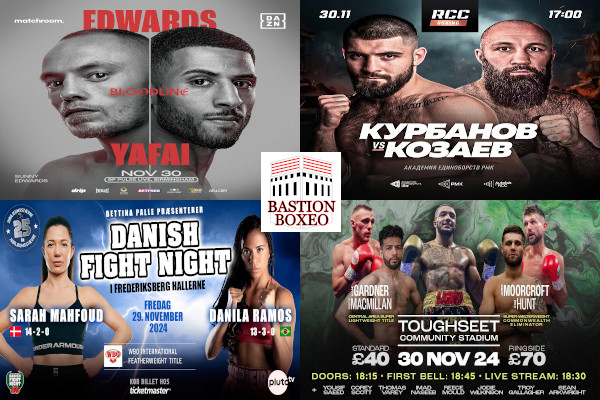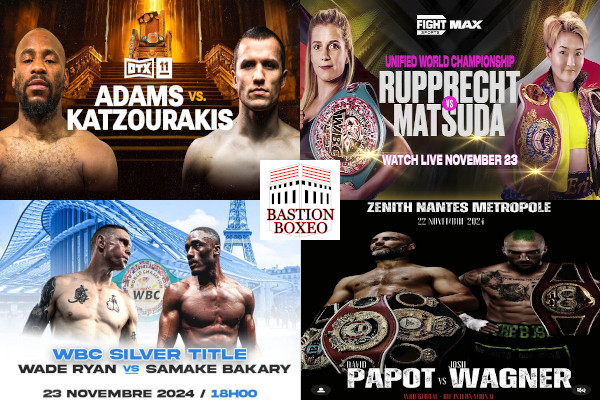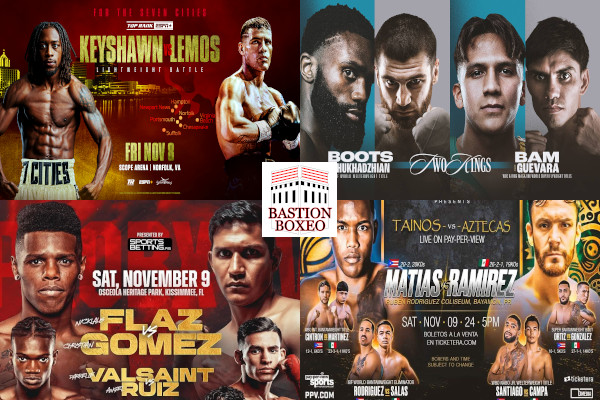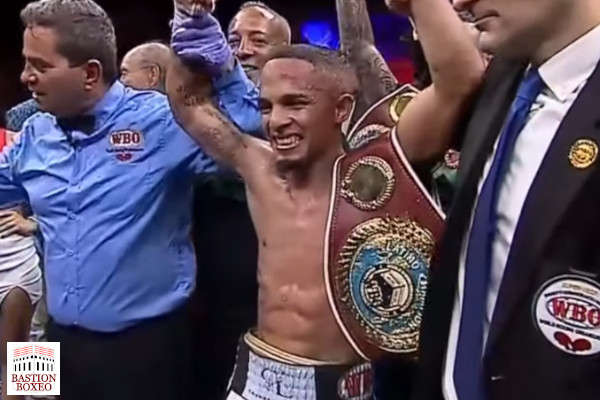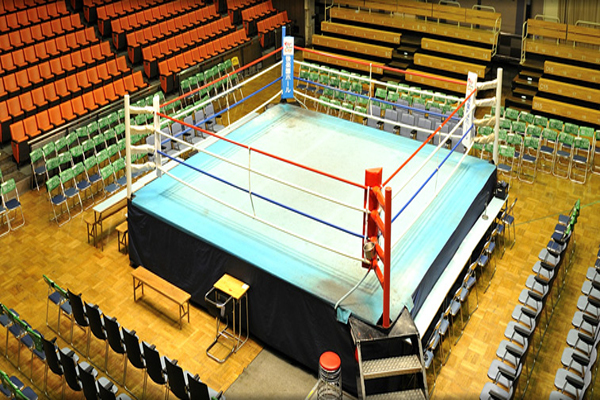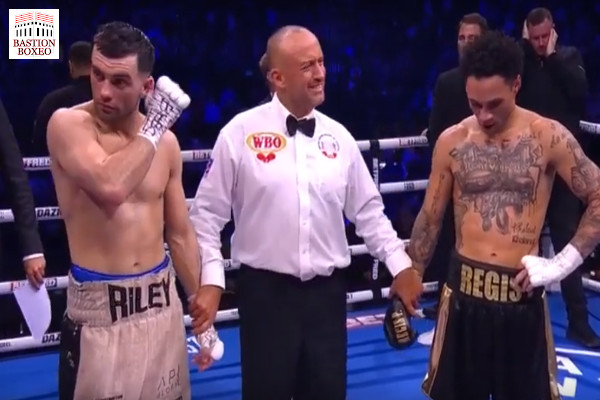David Benavídez cerca de pactar de nuevo duelo ante positivo por dopaje José Uzcátegui
Daniel Pi
@BastionBoxeo
Hay dos tipos de boxeadores. Los que denuncian la lacra del dopaje cada vez que tienen la oportunidad de hacerlo y los que se ponen de lado con el asunto. Entre este segundo grupo, el más numeroso, hay muchos púgiles que simplemente no se atreven a hablar de un tema espinoso o del que son bastante ignorantes. Sin embargo, hay otros que, pese a tener toda la información sobre la mesa, tienen una sospechosa indulgencia respecto a los dopados, estando incluso dispuestos a enfrentarse sin dudarlo a púgiles con positivos confirmados. Este es el caso del pegador del peso supermedio David “El Bandera Roja” Benavídez.
Dicho púgil se debería haber enfrentado el pasado noviembre a José Uzcátegui, pero este último dio positivo ni más ni menos que por eritropoyetina recombinante humana (rEPO). Tras conocerse el positivo la pelea fue cancelada inmediatamente (no como en el caso Eubank-Benn) y Benavídez se midió al sustituto Kyrone Davis.
Parecía que el asunto se iba a quedar ahí pero ahora, después de que la suspensión de Uzcátegui esté presuntamente cumplida, se ha vuelto a poner en la mesa de negociaciones un choque entre dicho dopado y David Benavídez, quienes están cerca de llegar a un acuerdo para combatir en enero. Esto resulta más llamativo aún si tenemos en cuenta que Benavídez puso de manifiesto en declaraciones tras el positivo de su oponente que entendía a la perfección el calado de las trampas de Uzcátegui, e incluso explicó qué potenciaciones ilícitas otorga el uso de EPO.
Llegados a este punto en el que no se puede alegar desconocimiento, sólo hay tres opciones para explicar el motivo de que haya aceptado enfrentarse a un dopado confirmado: que Benavídez tiene una confianza tan absurdamente desbordante que piensa que incluso un boxeador potenciado más allá de lo humano no le puede dañar o derrotar; que considera que el dopaje de Uzcátegui ya se habrá diluido y que ahora tendrá un rendimiento normal; o que él también está dopado y realmente no le importa enfrentarse a alguien como él.
Por otro lado, más allá de esto, resulta inmoral que alguien esté dispuesto a darle una oportunidad a un tramposo que ha intentado poner en peligro su salud y la de posiblemente muchos otros rivales. En esto tiene una enorme responsabilidad también Premier Boxing Champions, que es quien dirige las carreras de sus púgiles y toma las decisiones definitivas sobre ellos, y que por lo tanto debería haber adoptado una posición más coherente y justa y debería haber dado ejemplo excluyendo a un Uzcátegui que, además, ya les hizo cancelar un evento.
Para terminar de quitarle sentido al asunto, el Benavídez-Uzcátegui es una pelea sin verdadero interés deportivo para la mayoría de fans, que reclaman combates entre Benavídez y Jermall Charlo, Canelo, Andrade, Caleb Plant, etc. y no una pugna entre el pegador de incansable ritmo y un “Bolivita” que no gana una pelea destacable desde 2018 y que en 2019 fue derribado y derrotado (además de por Plant) por Lionell Thompson.
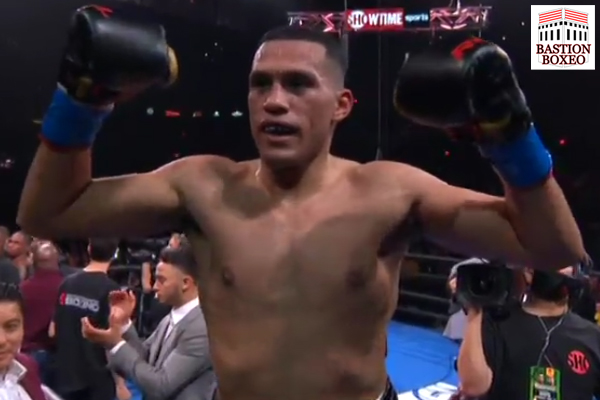
David Benavídez close to reaching a deal for duel against José Uzcátegui, who tested positive in anti-doping test
Daniel Pi
@BastionBoxing
There are two types of boxers. Those who have a hard position against the scourge of doping and talk against it every time they have the opportunity to do so, and those who turn a blind eye to it. Among this second group, the largest, there are many fighters who simply do not dare to talk about this delicate subject or are quite ignorant. However, there are others who, despite having all the information, have a suspicious leniency towards the doped boxers, and are even willing to face, without hesitation, fighters with confirmed positives tests. This is the case of super middleweight puncher David “El Bandera Roja” Benavídez.
This fighter should have faced José Uzcátegui last November, but the latter tested positive for recombinant human erythropoietin (rEPO). After the discovery of the positive test, the fight was immediately canceled (unlike in the Eubank-Benn case) and Benavídez faced the substitute Kyrone Davis.
It seemed that the matter was going to end there but now, after Uzcátegui’s suspension is presumably finished, a clash between said doped fighter and David Benavídez has been brought back to the negotiating table, and both are reportedly very close to reaching an agreement to fight in January. This is even more striking if we take into account that Benavídez made it clear in statements after his opponent’s positive that he perfectly understood Uzcátegui’s cheating, and even explained which illicit enhancements are obtained by the use of EPO.
At this point where ignorance cannot be used as an excuse, there are only three options to explain why he could agree to face a confirmed doped boxer: that Benavídez has so much overconfidence that he thinks even a boxer boosted beyond human limits cannot harm or defeat him; that he considers that Uzcátegui’s doping will have already been diluted and that now he will have a normal performance; or that he is also doped and doesn’t really mind facing someone like him.
On the other hand, beyond this, it is immoral for someone to be willing to give a chance to a cheater who has tried to put at risk his health and, possibly, the health of many other boxers. Premier Boxing Champions should also be blamed, as it directs the careers of its fighters and makes the final decisions about them, and therefore should have adopted a more logical and fair position and should have set an example by excluding Uzcátegui who, in addition, already made them cancel an event.
To top it all, the duel between Benavídez and Uzcátegui is a fight without real boxing interest for most fans, who want to see bouts between Benavídez and Jermall Charlo, Canelo, Andrade, Caleb Plant, etc. and not a clash between the tireless puncher and “Bolivita”, who has not won a notable fight since 2018 and who in 2019 was knocked down and defeated by Lionell Thompson.

